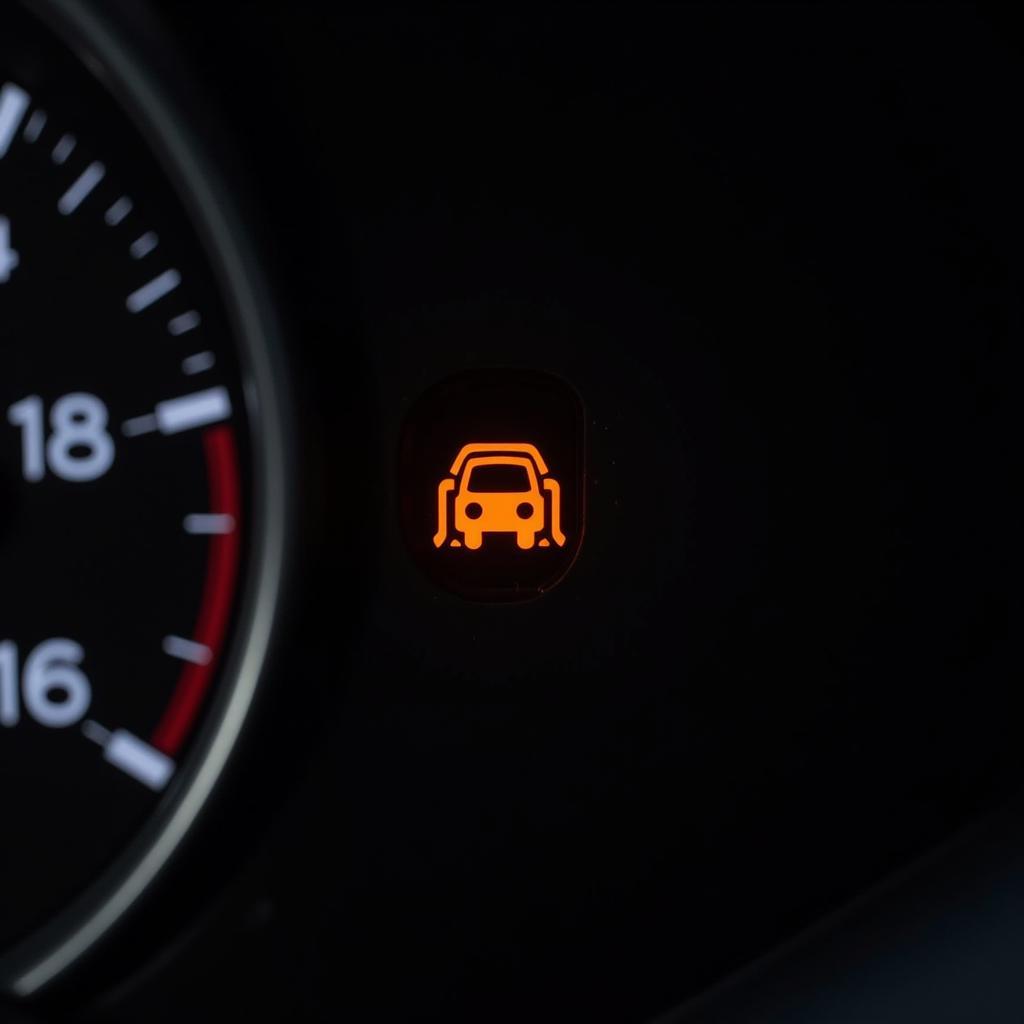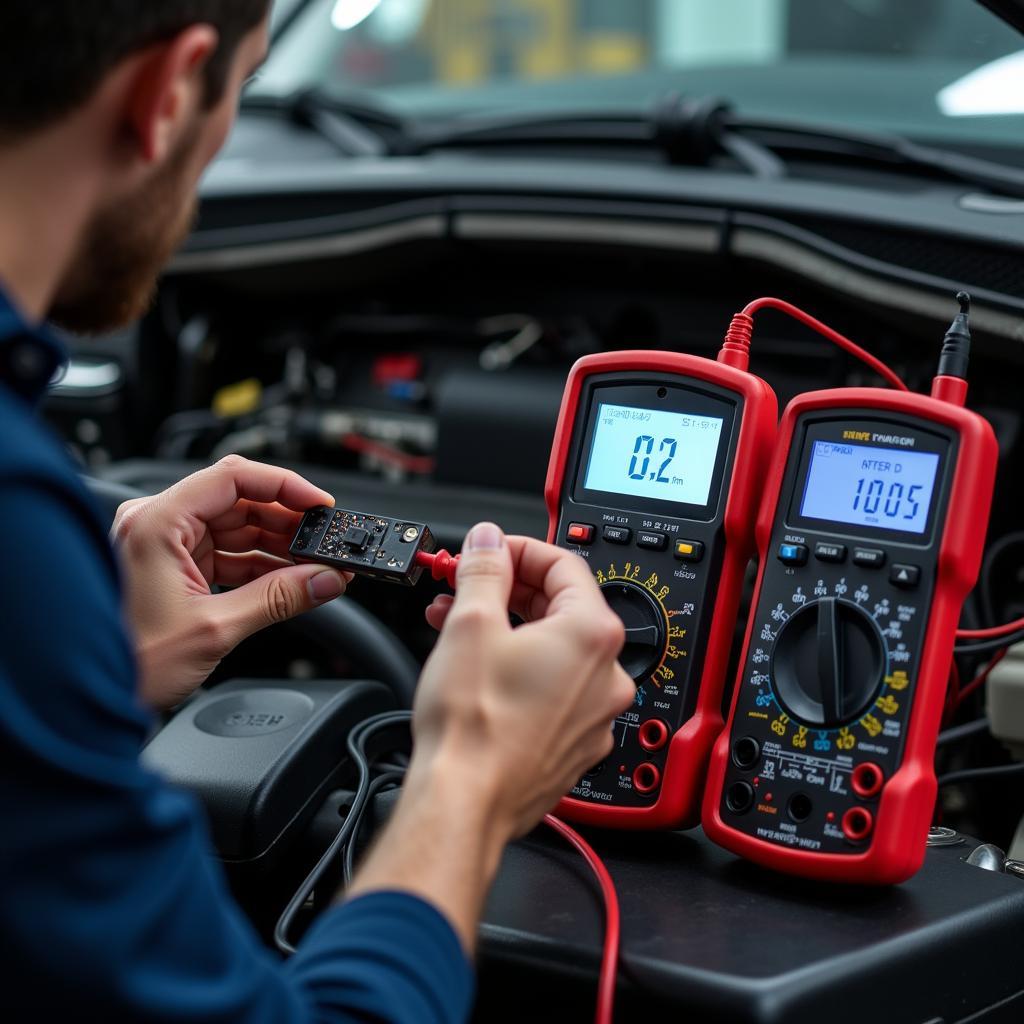Car Chip Problems have become increasingly common in recent years, impacting vehicle performance and causing headaches for drivers. Understanding the causes, symptoms, and solutions for these issues is crucial for both car owners and mechanics. This article provides a comprehensive guide to navigating the complexities of car chip malfunctions.
Have you ever experienced a sudden loss of power while driving, or perhaps your car refuses to start altogether? These can be telltale signs of car chip problems. Let’s explore the intricacies of these tiny but essential components. For more information on specific chip-related issues, you can refer to this resource on chip problem in car.
Understanding the Role of Car Chips
Modern vehicles rely heavily on a network of interconnected computer chips, also known as Electronic Control Units (ECUs). These chips manage everything from engine performance and fuel efficiency to safety features like airbags and anti-lock brakes. When a chip malfunctions, it can disrupt the smooth operation of these systems, leading to various driving problems.
Common Causes of Car Chip Problems
Car chips can malfunction for a variety of reasons, including:
- Power Surges: Sudden spikes in voltage can damage sensitive electronic components.
- Moisture and Corrosion: Exposure to water or humidity can corrode chip connections and circuitry.
- Physical Damage: Impacts or vibrations can damage chips or loosen their connections.
- Manufacturing Defects: Faulty chips can fail prematurely, leading to unexpected problems.
- Software Glitches: Errors in the chip’s programming can cause erratic behavior.
Identifying Car Chip Problems: Key Symptoms
Recognizing the symptoms of a failing car chip can help you address the issue promptly. Here are some common indicators:
- Check Engine Light: A persistent check engine light can indicate a chip malfunction, often accompanied by a specific diagnostic trouble code (DTC).
- Poor Fuel Economy: A sudden drop in fuel efficiency can be a sign of a faulty engine control unit (ECU).
- Rough Idling or Stalling: If your engine idles roughly or stalls frequently, a chip controlling the fuel injection or ignition system may be at fault.
- Transmission Problems: Slipping gears, harsh shifting, or a complete transmission failure can be related to a malfunctioning transmission control module (TCM).
- Loss of Power or Acceleration: A noticeable decrease in power or acceleration can be attributed to a faulty ECU or other related chips.
 Car Dashboard Showing Check Engine Light
Car Dashboard Showing Check Engine Light
For a deeper understanding of the common problems associated with car chips, you can explore this insightful article: what is the problem with car chips.
Troubleshooting and Solutions for Car Chip Problems
When faced with potential car chip problems, it’s important to take a systematic approach to troubleshooting:
- Read Diagnostic Trouble Codes (DTCs): Using an OBD-II scanner, retrieve any stored DTCs to pinpoint the source of the problem.
- Inspect Wiring and Connections: Check for loose, corroded, or damaged wiring harnesses and connections related to the suspected chip.
- Test the Chip: Use a multimeter or specialized diagnostic tools to test the chip’s functionality.
- Replace the Faulty Chip: If the chip is confirmed to be defective, replace it with a new, compatible unit.
- Update Software: In some cases, a software update can resolve glitches and improve chip performance.
Sometimes, seemingly unrelated problems can stem from chip issues. For example, a tie rod problem might not seem directly linked to a car’s electronic systems, but a faulty sensor or control module could contribute to uneven tire wear or steering issues. To learn more about such seemingly unrelated problems, visit car tie rod problems.
 Mechanic Testing Car Chip with Multimeter
Mechanic Testing Car Chip with Multimeter
“A thorough diagnosis is crucial before replacing any car chip. Often, a simple loose connection or software glitch can be the culprit,” advises John Miller, a seasoned automotive electrical engineer.
Conclusion
Car chip problems can be complex and frustrating, but with a thorough understanding of their causes, symptoms, and solutions, you can effectively address these issues and keep your vehicle running smoothly. Regular maintenance and prompt attention to warning signs can help prevent costly repairs and ensure safe and reliable driving. Remember, seeking professional help is always recommended when dealing with complex electronic systems. For assistance or further inquiries, connect with us at AutoTipPro. Our contact details are: +1 (641) 206-8880, 500 N St Mary’s St, San Antonio, TX 78205, United States. You can also find valuable information on checking for car chip problems at problem checker chip on cars. Don’t hesitate to reach out for expert advice and solutions for all your car chip problems.
“Regularly checking your car’s electrical system can prevent many chip-related problems down the line,” adds Maria Sanchez, a certified automotive technician. You can find more information on car chip issues at problem with chips for cars.





Leave a Reply